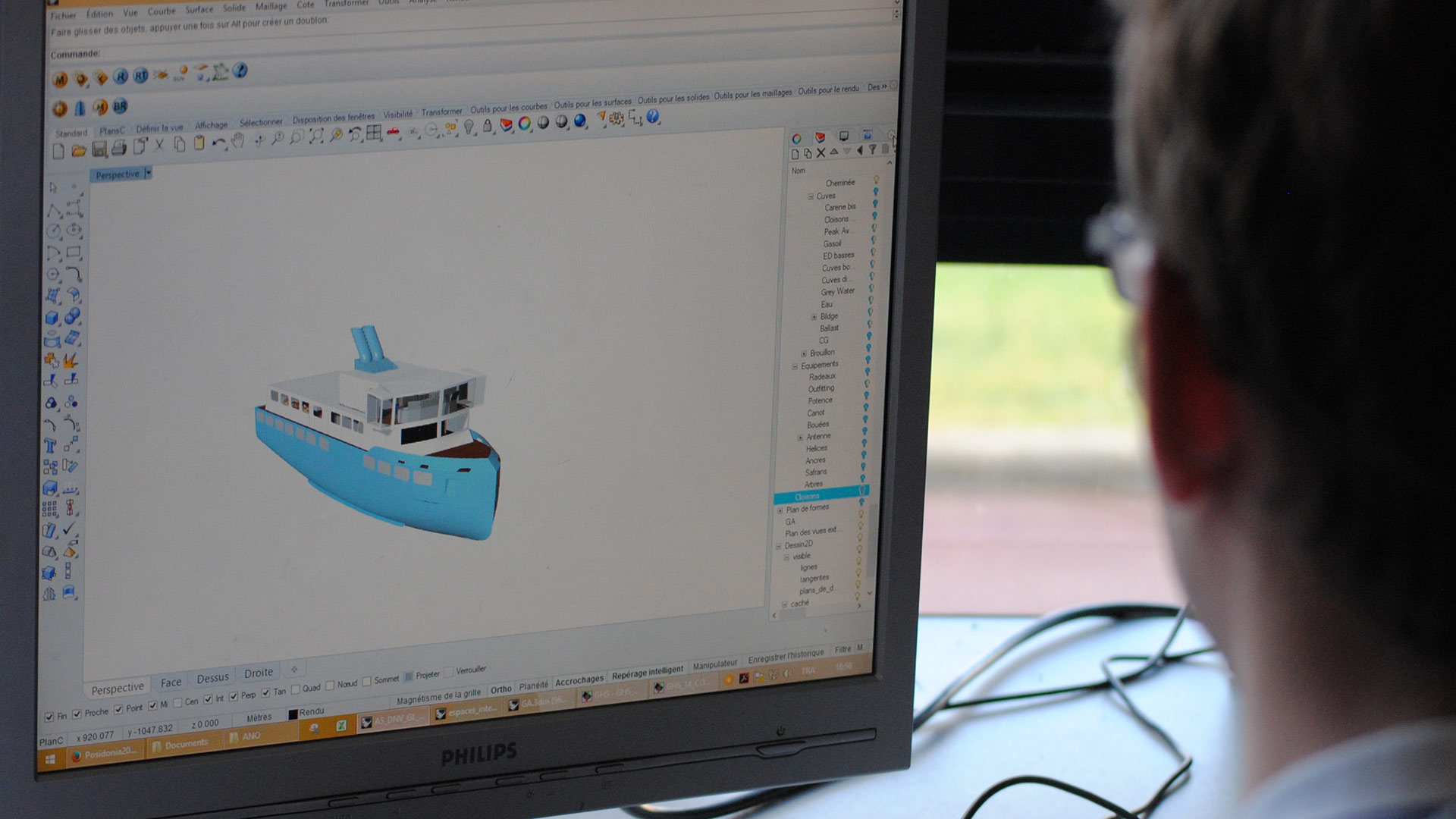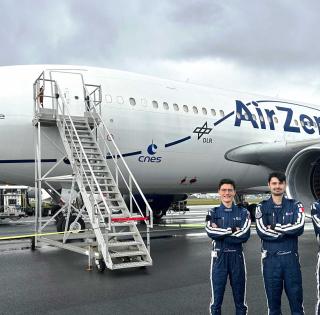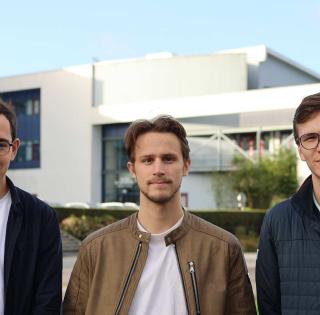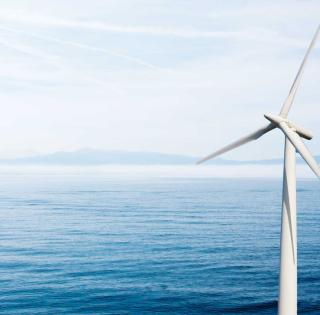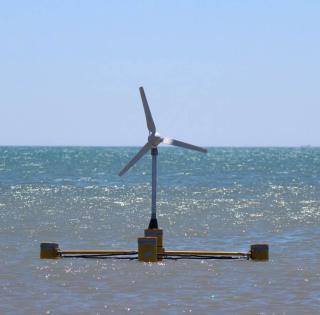
What did you think of your training course?
"The subjects we studied and the projects we worked on were the ideal preparation for the work I've actually been doing with my company. I would definitely recommend this program: it's perfect for anyone wanting to work in the naval sector."
Why did you choose ENSTA Bretagne's co-op engineering program?
"I'd been really into deep-sea and cave diving for a long time. After finishing my technical diploma in Mechanical Engineering and Manufacturing at the IUT in Bordeaux, I decided to enroll in a general engineering program with a focus on mechanics and links to the naval sector. I looked around and was accepted into some other schools, but ENSTA Bretagne was the only school in France to offer a co-op program specialized in the naval sector. The school also has an excellent reputation. Thanks to a CV I'd sent off a few months earlier, I was recruited for my work placements by Naval Group (formerly DCNS) in Angoulême/Ruelle. That immediately confirmed my choice of program and school."
What do you feel are the strong points of this program?
"With a bit of hindsight, I'd say the strong points are:
- The core course, because it touches on the methods and knowledge of several scientific disciplines and techniques, but also on project and people management and English.
- The Naval and Offshore Architecture specialization, which begins in second year and continues through most of third year, and brings together co-op and non co-op classes.
- The classes in your major subject, which are mostly taught by professional visiting lecturers, and are often in English.
- Work placements, where you apply and expand your knowledge and prepare for your final-year project.
- The final "classic" year, with six months of class (mostly in your specialization) followed by six months of work on your final project.
Did the Naval Architecture specialization live up to your expectations?
"It exceeded my expectations! I've put into practice almost everything I learned in this specialization both in my work placements and in my final-year project; the training in naval architecture, of course, but also hydrodynamics, offshore technology and structural calculations using FE. Everything I learned is still coming in useful today."
How was the co-op program organized?
"In the first two years, you alternate between two months of school and two months of work. This is the perfect rhythm to be able to work on projects in your placement and to follow classroom instruction more consistently. I compared my co-op schedule with two other engineering students from different schools who were working at the same company as me. Their work blocks were only one or two weeks, which didn't suit either the company or the students. Longer work placements also mean that you can potentially work at a company located far from the school."
What were your responsibilities at Naval Group (formerly DCNS)?
"Over the course of my work placements, I progressed from being a technician to an engineer, gaining more responsibility and working in more and more complex areas. The main projects I worked on were related to marine renewable energies, the civil nuclear industry, deep-sea mining exploration, and combat systems for military submarines. Often my work would be related to what I was learning in class and vice-versa, especially when it came to the basic fields."
It's been one month since the end of your work placement contract. What are you doing now?
"I was hired as a temp worker for six months to continue the work I began during my final-year project, which had led to a patent application. This might just lead to a job, although the economic situation is difficult at the moment. I'm also applying to Naval Group for a CIFRE (government-funded PhD research in the industrial sector) thesis to pursue this project."






